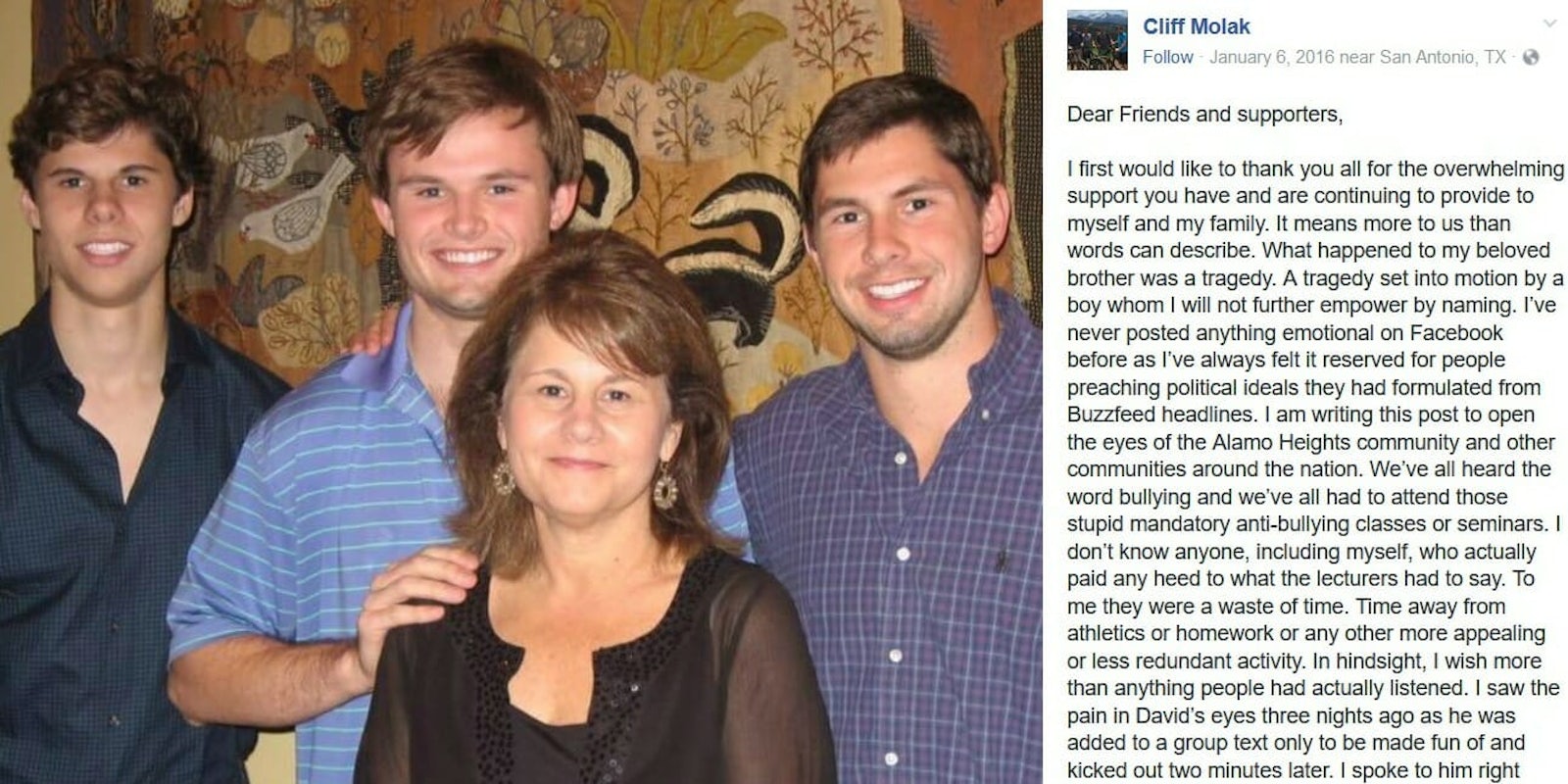Twenty months after San Antonio teenager David Molak’s suicide, the state of Texas officially has a new law that makes it a Class A misdemeanor for those who are found guilty of cyberbullying.
Senate Bill 179, known as David’s Law, which passed the Texas legislature earlier this summer and was enacted on Friday, makes student harassment, bullying, and cyberbullying a criminal offense. It also requires Texas school districts to include cyberbullying when discussing their bullying policies, to notify a student’s parents if their child is the victim or the aggressor of bullying, and to cooperate with police if cyberbullying turns life threatening. The law also encourages schools to invest in counseling services for those who are affected by bullying, whether they’re the victim or the alleged aggressor.
A Class A misdemeanor could be punishable by as much as a year in jail and/or a fine of up to $4,000.
“I hope it signals a change in our culture—a re-prioritization of our values,” State Sen. José Menéndez, a Democrat from San Antonio who authored the bill, said in June. “The Texas Legislature took a strong stance against bullying. I know the ripple effects will save a child’s life.”
“Student safety, both online and offline, are a District priority,” Mario DeLaRosa, the Round Rock Independent School District director of safety and security, said in a statement. “The consequences that result from the violation of ‘David’s Law’ are serious and it includes expanding the District’s scope of involvement when a case of cyberbullying is reported … We urge parents to continue to remind their student to be mindful of their online behavior, how it can affect themselves and others.”
Molak was 16 years old when he ended his life in January 2016 after enduring months of cyberbullying. No one was charged with a crime relating to his death because the Bexar County district attorney cited insufficient evidence. But Molak’s family and friends said the bullying began when he was a student at Alamo Heights High School; even after he moved to a different school, they said the cyberbullying continued.
According to My San Antonio, the unnamed cyberbully used Instagram to post a photo of himself with Molak’s girlfriend and wrote he was going to “steal your girl.” That reportedly led Molak and other students to react, and other Alamo Heights students commented that “Molak’s an ape” and “Put um inna coffin.”
As the Molak family noted at the time, there was no Texas statute that outlawed cyberbullying—it was considered a harassment case by Bexar County and not one that involved physical bullying. “The laws regarding this new type of social media harassment simply have not kept up with the times,” the family said then in a statement.
Now, though, David’s Law addresses those issues.
As David Molak’s brothers wrote a few days after his death in a viral Facebook post, “In today’s age, bullies don’t push you into lockers, they don’t tell their victims to meet them behind the school’s dumpster after class, they cower behind user names and fake profiles from miles away constantly berating and abusing good, innocent people. The recent advances in social media have given our generation a freedom of which has never been seen before. Freedom is a beautiful thing, however as freedom and personal liberties expand (and they rapidly are), there needs to be an equal expansion of personal accountability.”


